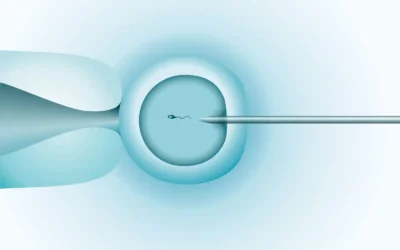Male Fertility

The morefertile® male fertility section covers men’s reproductive organs, how sperm are made in them, how male fertility is changing, and the different ways to check male fertility. Male fertility is closely related to health and well-being, and the morefertile® personal fertility profiles (PFPs) have information packages for men to raise their fertility health. Additional […]
ICSI – Male

Intra-Cytoplasmic Sperm Injection (ICSI) is the most significant development in modern male fertility treatment and has enabled tens of thousands of men to be biological fathers. Men with low sperm counts, high numbers of abnormal sperm, or whose sperm are unable to bind to (and fertilise) eggs can bypass all these barriers to conception by […]
Get Pregnant Quicker

It’s possible to significantly improve monthly conception rates with “fertility charting”, which identifies the most (and least) fertile days in the menstrual cycle by two things: Changes in sex hormone levels affect a woman’s BBT, making it possible to identify the day of ovulation, reveal the health of the phases and predict fertile days next […]
Lifestyle Factors
Lifestyle Factors involve managing what a patient has rather than excluding or making dramatic changes, and it’s possible to alter five of the six factors to change the impact of the sixth (age) on fertility levels. Lifestyles profoundly impact health and fertility, and improving health through lifestyle choices significantly benefits parents and their future children’s […]
Qi and Blood Stagnation – Male
The smooth flow of Qi and Blood is essential for male reproductive health, both for the development of sperm and for the function of the penis. Qi stagnation in the Lower Jiao is often the result of: Blood stagnation can develop from Qi stagnation, from an accumulation of Phlegm, or directly from physical trauma. The […]
Qi and Blood deficiency – Male
Qi and Blood deficiency is nearly always rooted in Spleen Qi deficiency which is unable to produce sufficient post-heavenly Qi, and this lack of nourishment compromises sperm production and reduces a man’s fertility. Type II diabetes is an example (and often a Spleen Qi issue) that causes lower seminal fluid volumes and higher rates of […]
Kidney Yin Deficiency – Male
Kidney Yin, Yang, Qi and Jing underpin fertility and are all prone to deficiency (rather than excess). The attributes of Yin are to be cooling and substantial, which provides the basis for the expression of Kidney energy. Modern lifestyles are especially draining of Yin reserves, and Kidney Yin deficiency encourages the development of Empty Heat, […]
Kidney Yin and Yang Deficiency – Male
Men with a mixture of Kidney Yin and Yang deficiency are regularly seen in fertility clinics, as both conditions reduce semen and sperm quality. The mixture of syndromes is usually the result of: Joint Kidney Yin and Yang deficiency is more common for older men as ageing inevitably depletes Yin reserves, and each year testosterone […]
Kidney Yang Deficiency – Male
Kidney Yang deficiency is one of the most frequent causes of male sub-fertility, and Kidney Yang has an essential role in warming the “bao” (room of sperm) in the lower abdomen. When the “bao” lacks Yang energy, it becomes more difficult for normal balance and control of the urethra and testes. The nature of Yang […]
Kidney Jing Deficiency – Male
Kidney Jing controls men’s eight-year cycles of health and development, and it underlies all sexual development, a man’s fertility, and his libido. In modern medicine, Jing relates to the genetics we inherit from our forebears and the “expression” of those genes as we age. In CM terms, Jing is expressed through the actions of Yuan […]


